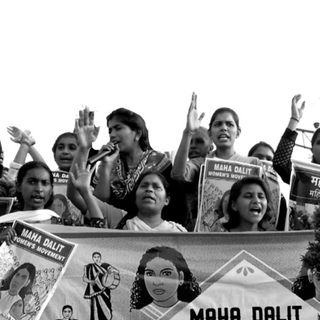A new initiative in the Uttarakhand district of Pauri Garhwal aims to increase awareness about women’s property ownership rights. Called Ghaur ki Pachyan, Nauni ku Nau (the identity of the home, in the name of the daughter), the program involves trying to convince residents to change the nameplate of their house to include, or feature, the name of the girls and women residing in the household. This aims to get more families to display pride in their women members and ultimately move the conversation forward regarding women’s right to own property in India.
“Usually, women don’t claim their ancestral property and leave it to their male siblings,” the chairperson of the State Commission of Women, Vijaya Barthwal, told the Indian Express. This is a practice called haq tyag, common in the northern states of India. In adhering to this practice (often through coercion), the woman gives up her claim to any family property, often in exchange for money for her wedding or marriage dowry, Prem Chowdhry, a historian and gender expert on inheritance laws, told Reuters.
The recent initiative aims to change mindsets about women’s property ownership at a social level, primarily because laws that encourage it are already present, but the awareness about them is minimal. For example, the Supreme Court had declared as early as 2005 that Hindu, Jain, Sikh, and Buddhist women in India had an equal right to inherit property as men. Inheritance rights of Muslim, Christian, and Parsi women, on the other hand, are governed by older laws, in which inheritance can be gender-just, but requires several stipulations.
Related on The Swaddle:
Know Your Rights: Property Rights For Women
“Despite the enactment of such legislations, instances prevail where women have not been made aware of their rights,” Supreme Court lawyer Arti Singh told Financial Express. “The urgent need is to communicate to the people the importance and significance of laws so that the future of rights and liberties become richer.”
And so will women’s lives. Land is one of the biggest assets people own and inherit in India, as it has the ability to sustain people’s livelihood by creating income. When women own land, they reduce the risk of poverty, and increase the chances of better wellbeing for their children, author of A Field of One’s Own: Gender and Land Rights in South Asia, Bina Agarwal, said in an interview. She adds that her research showed “owning immovable property greatly reduced women’s risk of domestic violence.”
Land ownership can also enhance the lives of women farmers, who make up 73.2% of rural working women in the country. Only 12.8% own the land they cultivate, however, which not only threatens their security, but also decreases their bargaining power in the home and at work. The only way this statistic can change in India is through widespread awareness of inheritance laws and a complete overhaul of social mores around women’s property rights. The latest initiative looks promising but starts off small. Only time will tell if the rest of the country is ready for it.




